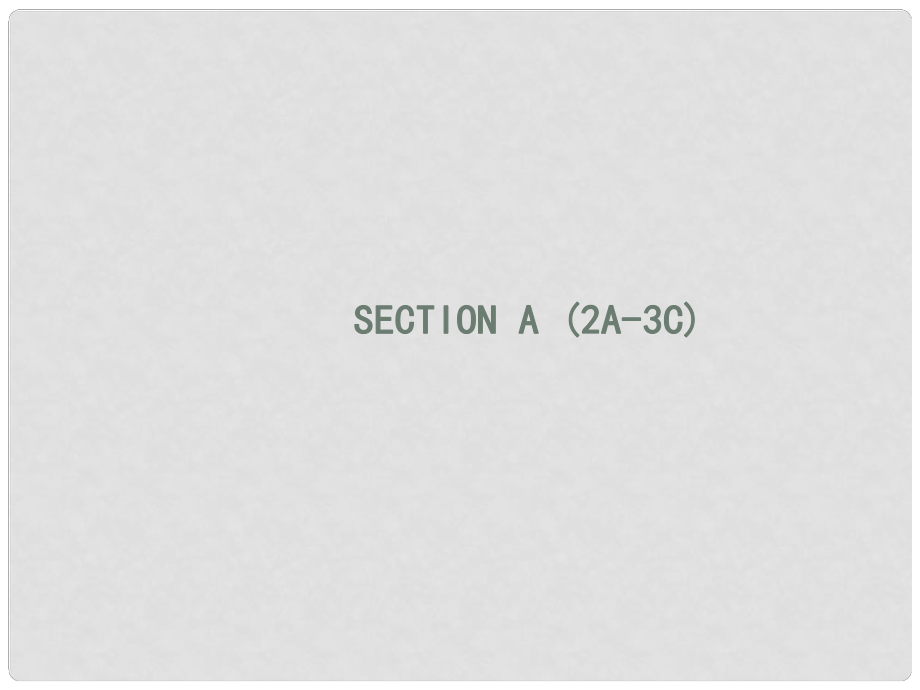《七年級(jí)英語上冊 Unit 4 Where’s my schoolbag Section A(2a3c)課件 (新版)人教新目標(biāo)版》由會(huì)員分享���,可在線閱讀��,更多相關(guān)《七年級(jí)英語上冊 Unit 4 Where’s my schoolbag Section A(2a3c)課件 (新版)人教新目標(biāo)版(6頁珍藏版)》請(qǐng)?jiān)谘b配圖網(wǎng)上搜索��。
1��、SECTION A (2A-3C)SECTION A (2A-3C).看圖畫,寫單詞 chair CDs bed baseball table/desk pencil box sofa schoolbag .完成句子1.我的書在哪里?它們在沙發(fā)上���。my books?the sofa.2.他的鉛筆盒在哪里?它在他的書包里���。 his pencil box?his schoolbag.Where are Theyre on Wheres Its in 3.鑰匙在沙發(fā)上嗎?不,不在。它們在桌子上��。 the keys the sofa?No,.the table.4.我認(rèn)為它在你爺爺奶奶的房間里��。I y
2���、our grandparents room.Are on they arent Theyre on think its in 121.Are the keys on the sofa?鑰匙在沙發(fā)上嗎?剖析這是一個(gè)一般疑問句, 主語是復(fù)數(shù)名詞keys, 所以be動(dòng)詞用are���。如果主語為名詞的單數(shù)形式, 那么be動(dòng)詞用is���。如:Is your sofa green?你的沙發(fā)是綠色的嗎?拓展對(duì)于這樣的一般疑問句, 肯定回答通常用“Yes, it is./Yes, they are.”;否定回答通常用“No, it isnt./No, they arent.”���。如:Is the baseball un
3、der the table?那個(gè)棒球在桌子底下嗎?Yes, it is.是的���。122.I dont know.我不知道���。剖析本句是一個(gè)否定的陳述句���。使用時(shí),常常在前面加上“Sorry”或“Im sorry”等顯得禮貌、客氣��。I是主語, dont know是謂語���。do是助動(dòng)詞, 本身無意義, 和not縮寫為dont, 用來否定一個(gè)實(shí)義動(dòng)詞���。如:Wheres my key?我的鑰匙在哪兒?Sorry,I dont know.對(duì)不起,我不知道。I dont call her.我沒有給她打電話��。拓展know除了“知道, 了解”之意外, 還有“認(rèn)識(shí)”之意���。如:Do you know Tom?你認(rèn)識(shí)湯姆嗎?No, I dont.不, 我不認(rèn)識(shí)���。know的同音異義詞是no, 請(qǐng)記住喲!
 七年級(jí)英語上冊 Unit 4 Where’s my schoolbag Section A(2a3c)課件 (新版)人教新目標(biāo)版
七年級(jí)英語上冊 Unit 4 Where’s my schoolbag Section A(2a3c)課件 (新版)人教新目標(biāo)版

